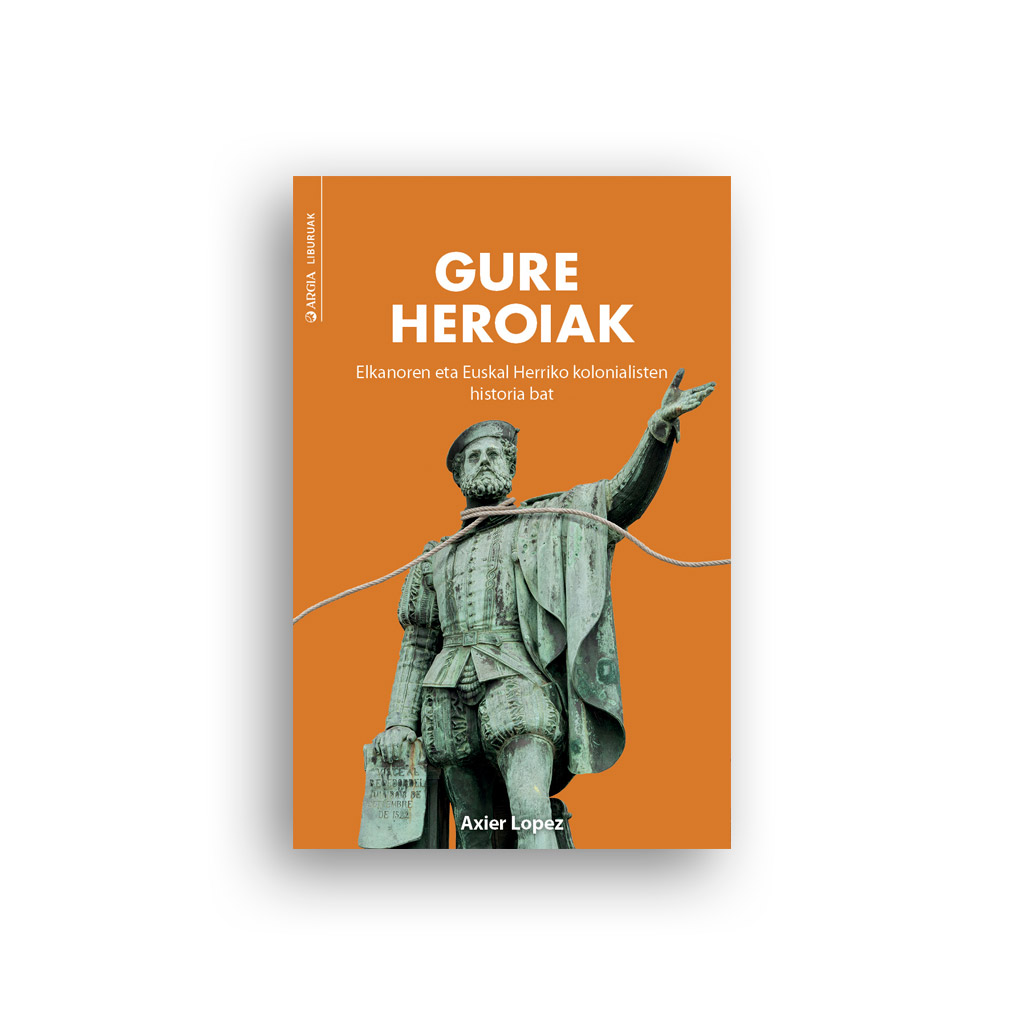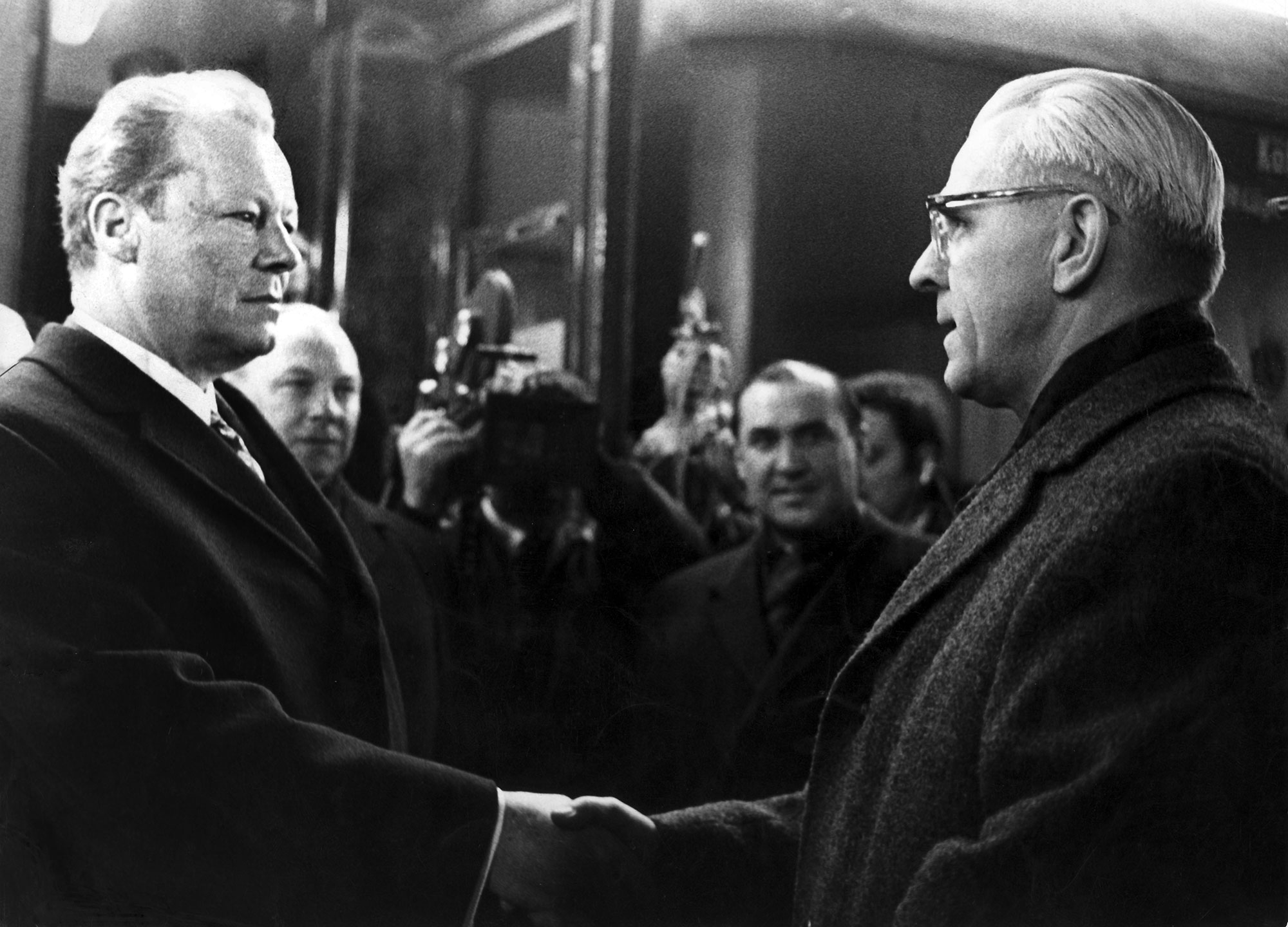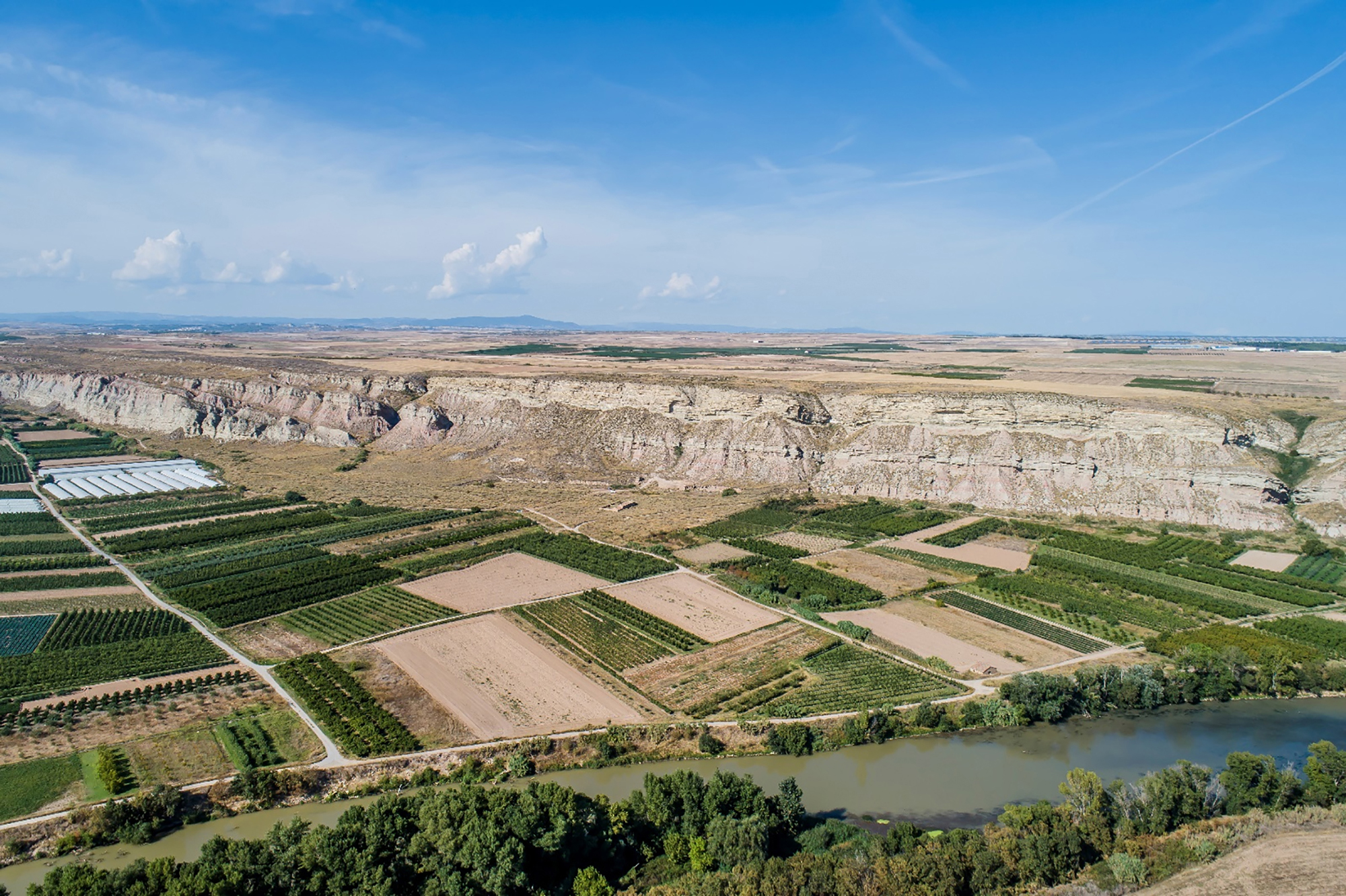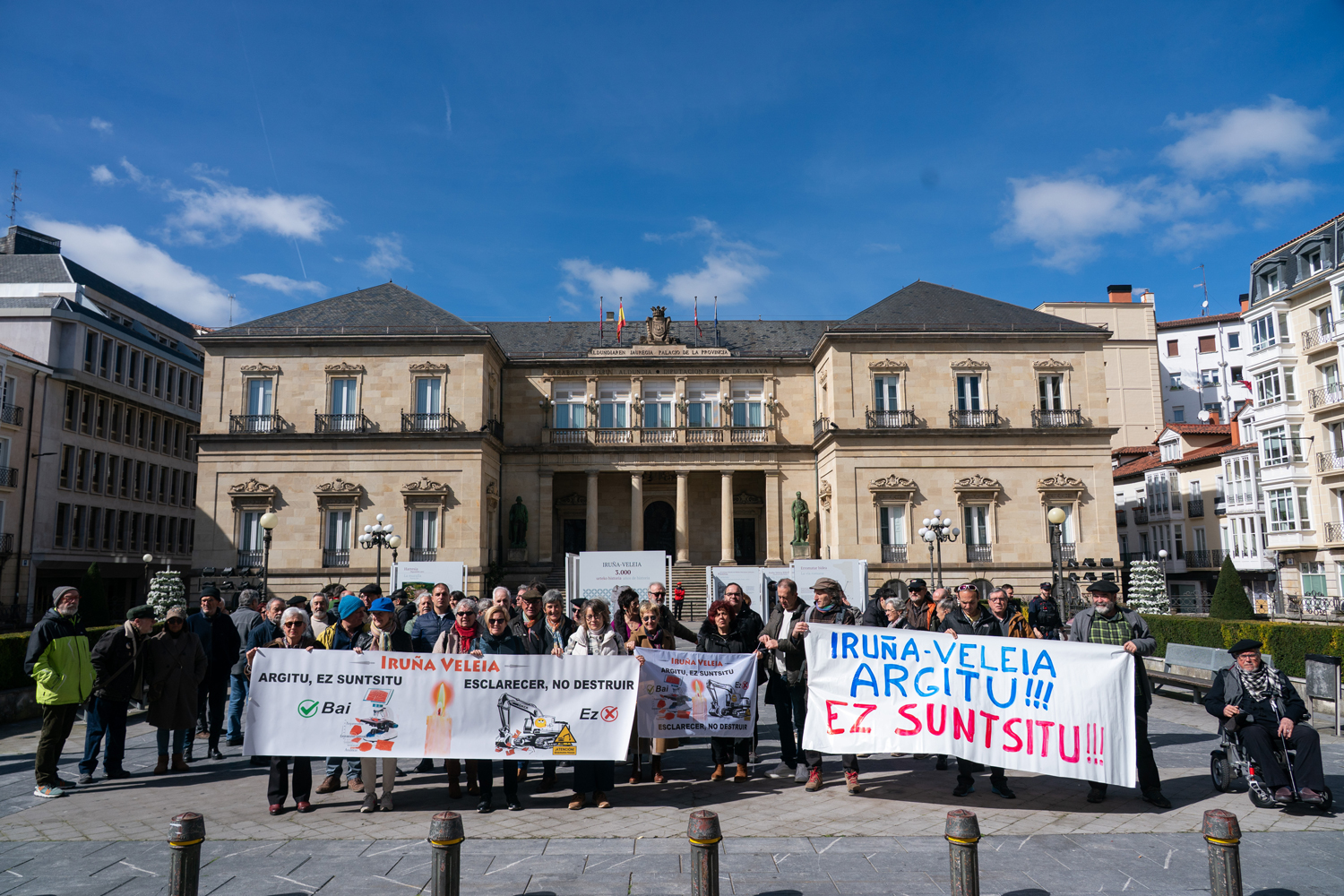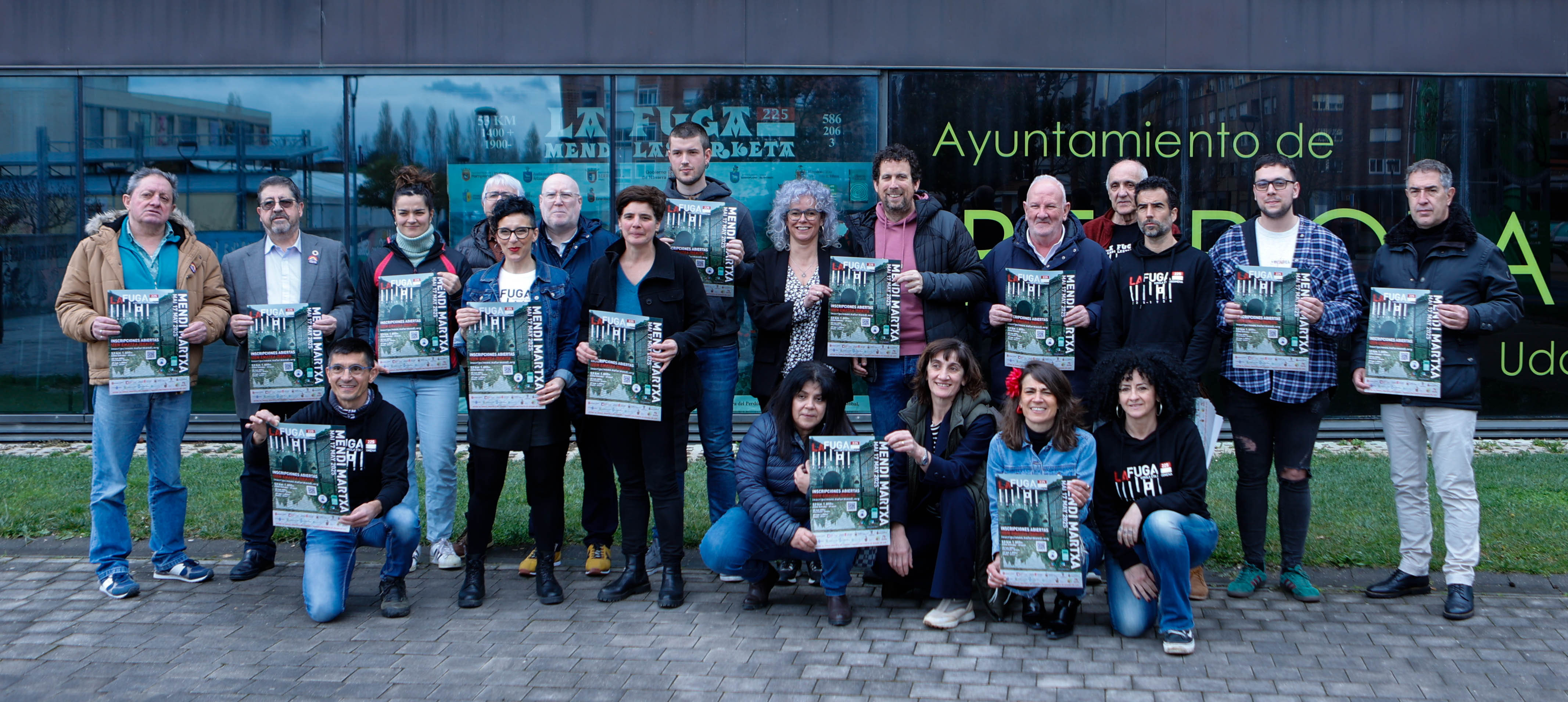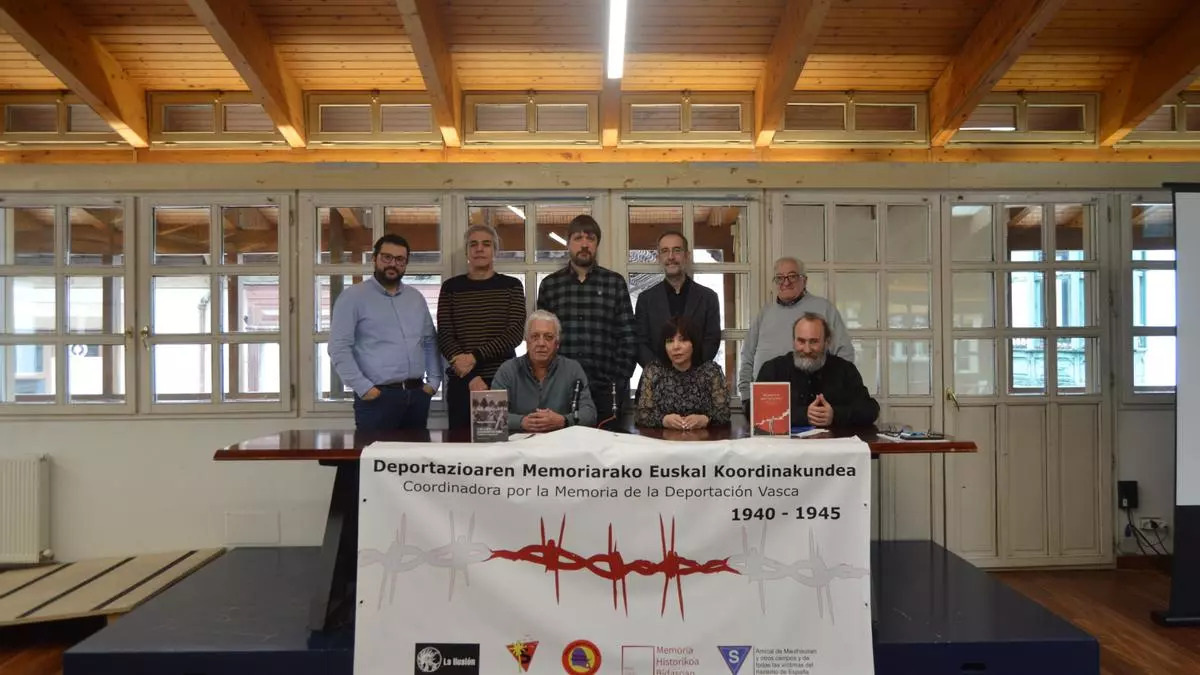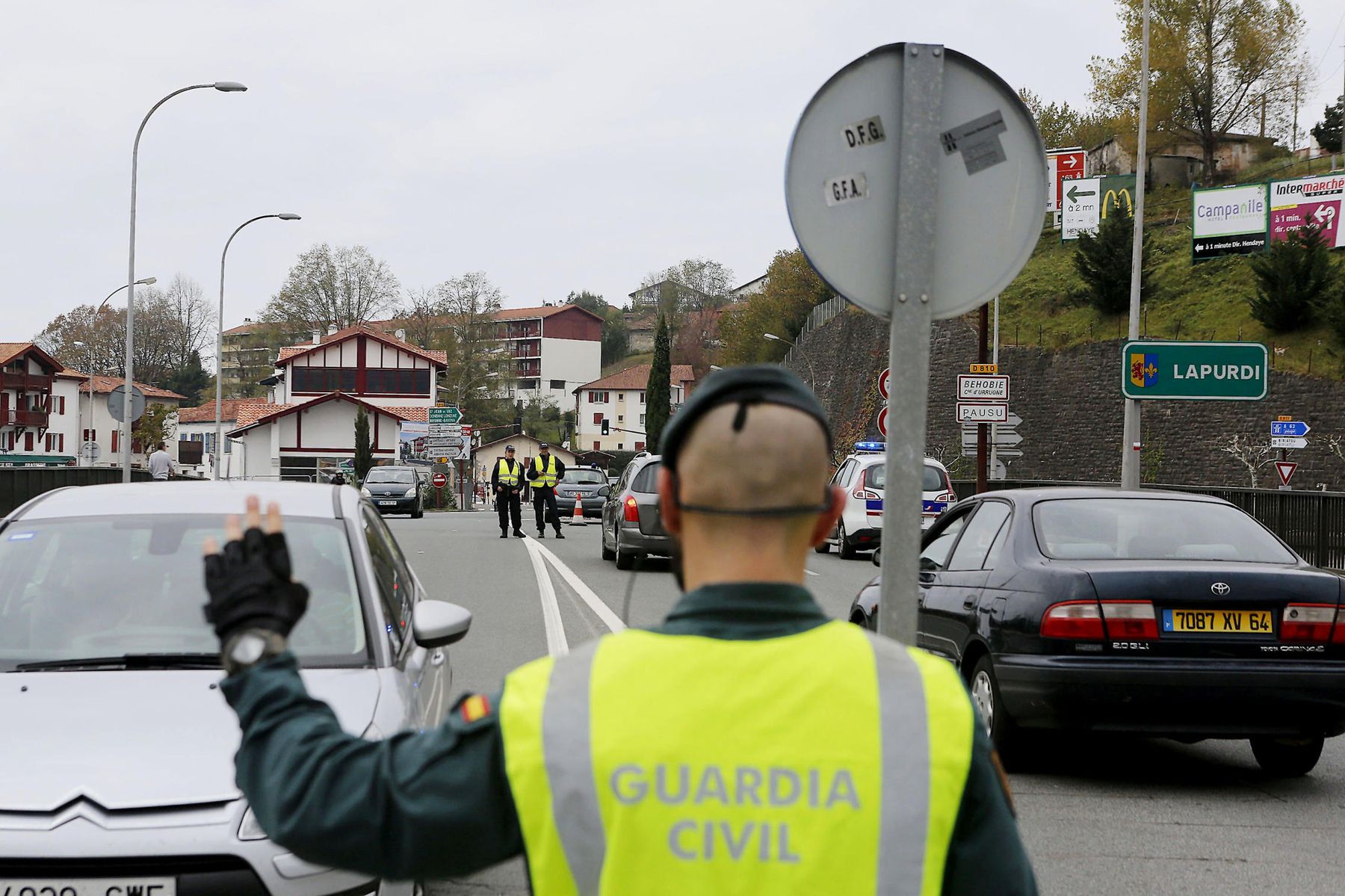Bakunin Battalion; Anarchist Militiamen Who Shook The Believing Amurrian Society Dressed As Priests
- Sergio Balchada Outeiral has published his book on the Galicians who fought in the Civil War in the Republican area. Many of them were in Amurrio, in the Bakunin Battalion. Their presence attracted the attention of the residents of Amurrio, as the atheism they practiced collided with the local conservative society.

Sergio Balchada is the Galician Outerial Maringoa, but he has lived for many years in Maroño and now lives in Amurrio. He recently published the book Galegos no Exército de Euzkadi 1936-1937, in the civil war to gather the experiences of the Galician wrestlers.
Many of them were in the Republican side in numerous battalions. "In most non-nationalist battalions (anarchists, socialists or communists) were the Galicians. The CNT Celtic Battalion was almost 100% Galician," explains Balchada.
Galician anarchists in Amurrio
Among the Galicians who faced the coup of 18 July 1936, there were many who came to Ayala. Some in the UGT 4 Battalion, the Carlos Marx Battalion, or the Captain Casero Battalion, unit of the Republican Left. However, most of them worked in the Bakunin Battalion.
As its name suggests, this group was anarchist and its relationship with the CNT trade union. "They were godly, they wanted to eliminate state, capitalism and religion through revolution to create an egalitarian society," the author explains.
In fact, they participated in the first battles of the Txibarte Mountains and Santiago in December 1936, and lost a captain killed by the requetés. In 1937 they were led to the battle of Sollube.
Collisions with the conservative society of Amurrio
This revolutionary character was not common in Ayala, an Abertzale area and a believer. As a result, when the militiamen appeared in priestly clothes in the region, they drew the attention of the locals. "Most lived in Trintxerpe before the outbreak of war. They were sailors and they created the union. In fact, when the war began, they were on strike and left to fight in San Sebastian against the coup d’état. When Gipuzkoa was left in the hands of the rebels, they went to Bizkaia and I assume that on the way they had taken the clothes of the priests in the churches to mock the faithful," said Balchada.

However, anarchist atheism did not stop: "They were based in Refor and burned the religious library there. Apparently, they made a humorous procession and then burned the books in the football field."
In Lezama there were also problems with the people of the town. According to the writer, two or three militiamen appeared in a Mass and spoke against the priest. In the church there were also people linked to the armed PNV, and the threats led to the march of the anarchists.
Black legend of the Bakunin Battalion
Balchada has not prevented the most controversial step of the Bakunin Battalion and has explained its details. In other words, he accuses the anarchists of the shooting of the five Asaltic Guards, the police of the Republic. "In fact, in Bakunin, the militiamen of the Battalion merged these five guards in October 1936. However, as depicted in the biography of a wrestler, it was not his idea. The Assault Guards appeared in Refo and said the militiamen went to train. However, the General Staff of the sector ordered the murder of the battalion commander Isaac Olmos. Those in charge of the sector told him that they were spies and that their intention was to desert to join the rebels," the researcher explains.
Book
The book by Balchada, for the time being, is only published in Galician, and although the idea of publishing it in Basque is on the table, it does not know if it will be possible: "The Diputación de Pontevedra has the last word."
The text presented by Sergio Balchada in Marín, his hometown, will be presented in Trintxerpe shortly. Its intention is to organize the presentation also in Amurrio: "Despite being in Galician, I think stakeholders will understand the text effortlessly."
Ereserkiek, kanta-modalitate zehatz, eder eta arriskutsu horiek, komunitate bati zuzentzea izan ohi dute helburu. “Ene aberri eta sasoiko lagunok”, hasten da Sarrionandiaren poema ezaguna. Ereserki bat da, jakina: horra nori zuzentzen zaion tonu solemnean, handitxo... [+]
Linear A is a Minoan script used 4,800-4,500 years ago. Recently, in the famous Knossos Palace in Crete, a special ivory object has been discovered, which was probably used as a ceremonial scepter. The object has two inscriptions; one on the handle is shorter and, like most of... [+]
Londres, 1944. Dorothy izeneko emakume bati argazkiak atera zizkioten Waterloo zubian soldatze lanak egiten ari zela. Dorothyri buruz izena beste daturik ez daukagu, baina duela hamar urte arte hori ere ez genekien. Argazki sorta 2015ean topatu zuen Christine Wall... [+]
Kirola eta oroimena uztartuko dituzte, bigarrenez, mendi-martxa baten bitartez. Ez da lehiakorra izanen, helburua beste bat delako. La Fuga izeneko mendi martxak 1938ko sarraskia gogorarazi nahi du. Ezkabako gotorlekuan hasi eta Urepelen amaituko da. Maiatzaren 17an eginen dute.
Bilbo, 1954. Hiriko Alfer eta Gaizkileen Auzitegia homosexualen aurka jazartzen hasi zen, erregimen frankistak izen bereko legea (Ley de Vagos y Maleantes, 1933) espresuki horretarako egokitu ondoren. Frankismoak homosexualen aurka egiten zuen lehenago ere, eta 1970ean legea... [+]
Fusilamenduak, elektrodoak eta poltsa, hobi komunak, kolpismoa, jazarpena, drogak, Galindo, umiliazioak, gerra zikina, Intxaurrondo, narkotrafikoa, estoldak, hizkuntza inposaketa, Altsasu, inpunitatea… Guardia Zibilaren lorratza iluna da Euskal Herrian, baita Espainiako... [+]
Deportazioaren Memoriarako Euskal Koordinakundeak aintzat hartu nahi ditu Hego Euskal Herrian jaio eta bizi ziren, eta 1940tik 1945era Bigarren Mundu Gerra zela eta deportazioa pairatu zuten herritarrak. Anton Gandarias Lekuona izango da haren lehendakaria, 1945ean naziek... [+]
Guardia Zibilaren historia bat - Hemendik alde egiteko arrazoiak izenburupean, datorren astean argitaratuko dugun 305. LARRUN aldizkariaren pasarte batzuk dira ondorengoak, erakunde armatuaren sorrera garaietan girotutakoak.
Iazko uztailean, ARGIAren 2.880. zenbakiko orrialdeotan genuen Bego Ariznabarreta Orbea. Bere aitaren gudaritzaz ari zen, eta 1936ko Gerra Zibilean lagun egindako Aking Chan, Xangai brigadista txinatarraz ere mintzatu zitzaigun. Oraindik orain, berriz, Gasteizen hartu ditu... [+]









